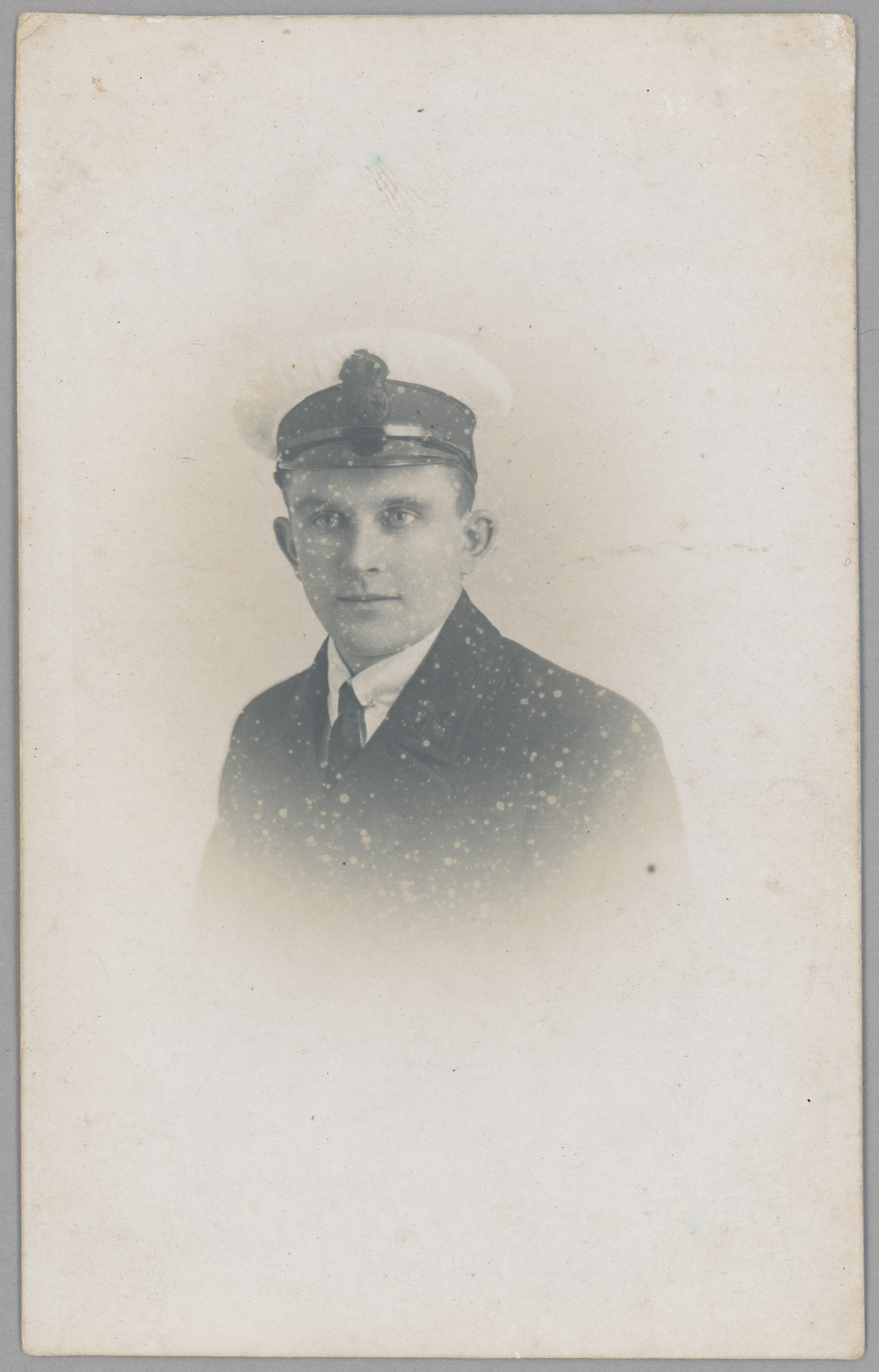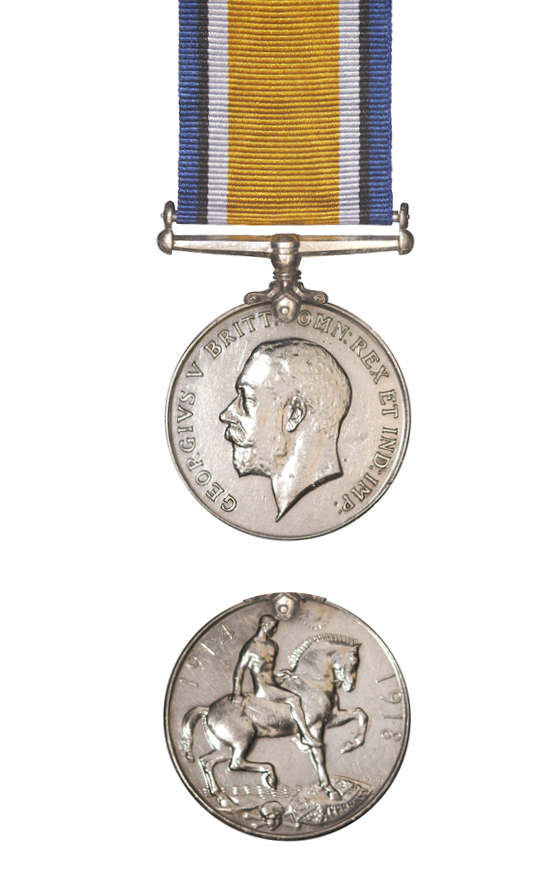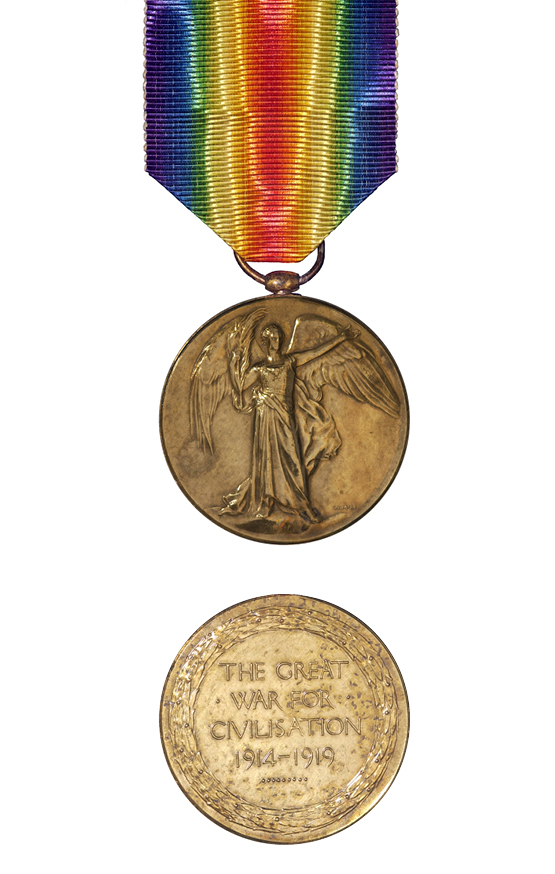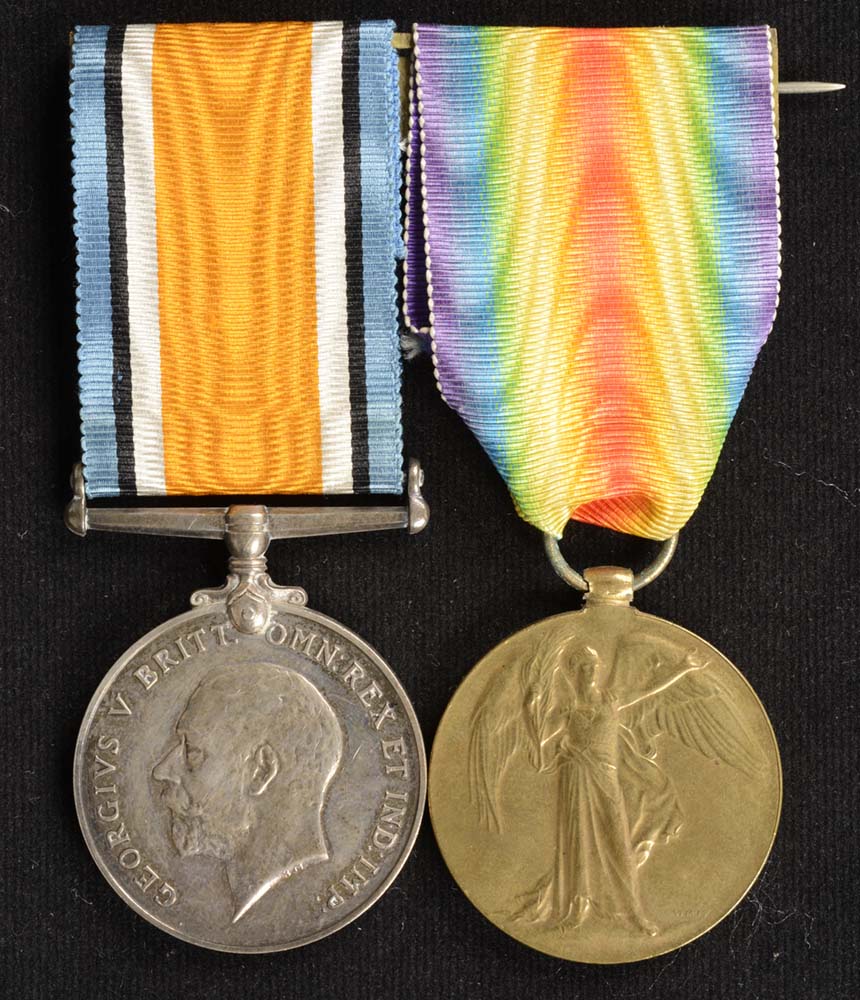

Display No. 14B
MESSENGER, Alfred Gordon
Alfred Messenger joined the Royal Naval Volunteer Reserve during the First World War. He departed New Zealand on HMNZT Maunganui in November 1916. He was trained in HMS Hermione as a Motor Mechanic. Messenger was posted to the Coastal Forces and was based in HMS Arrogant serving aboard a motor launch (ML). By the end of 1917 he was posted to ML 241. He was present at the raid in Zeebrugge in April 1918 and at Ostend in May 1918. His Commanding Officer commended his mechanical skills in keeping the engines in operation and his great devotion to duty during the attacks. In 1919 he was discharged and returned to New Zealand.
Awarded medal(s)
Medal Description [Left to Right]:
The British War Medal

The British War Medal was instituted in 1919 to recognise the successful conclusion of the First World War (1914-1918). Its coverage was later extended to recognise service until 1920, recognising mine clearing operations at sea, and participation in operations in North and South Russia, the eastern Baltic, Siberia, the Black Sea and the Caspian Sea.
The Victory Medal

The Victory Medal was awarded in the First World War to all those who had already qualified for the 1914 Star or the 1914-15 Star, and to most persons who had already qualified for the British War Medal. The Victory Medal was awarded to all New Zealand troops serving overseas, except for those who arrived in Samoa after 30 August 1914 and those serving in Great Britain only. It has a unique double rainbow ribbon.
A bronze spray of oak leaves on the medal ribbon denotes that the recipient was Mentioned in Despatches during the period that the medal recognises. To be Mentioned in Despatches a member of the armed forces has had their name mentioned in an official report, written by a superior officer, and sent to a higher command. The report would describe the individual’s gallant or meritorious action in the face of the enemy.

